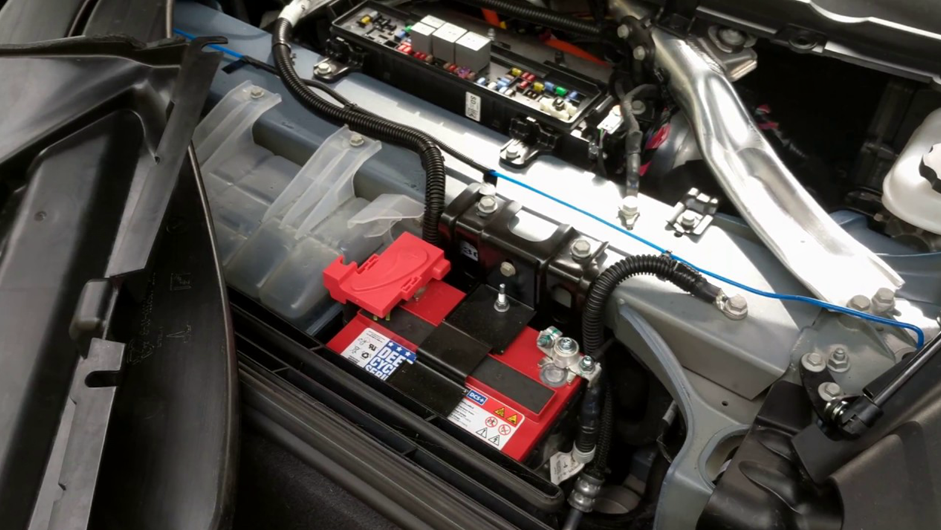Instrumentation of Lithium Battery: Enhancing Performance and Safety
Introduction:
Lithium-ion batteries have revolutionized the portable electronic industry and are becoming increasingly prevalent in various applications, from electric vehicles to renewable energy storage. However, ensuring the performance and safety of lithium batteries is of utmost importance, as their failure can result in catastrophic consequences. This article aims to explore the significance of instrumentation in lithium batteries and how it enhances their performance and safety.
1. Monitoring and Control Systems:
Instrumentation plays a crucial role in monitoring and controlling various parameters of lithium batteries, such as voltage, current, temperature, and state of charge. Real-time monitoring allows for early detection of any abnormalities or deviations from normal operating conditions, ensuring timely intervention to prevent potential risks. Control systems can adjust charging and discharging rates based on the battery\’s condition, optimizing its performance and extending its lifespan.
2. Thermal Management:
One of the major challenges with lithium batteries is heat generation during charging and discharging processes. Instrumentation enables the implementation of effective thermal management systems to regulate temperature within safe limits. Temperature sensors and thermal imaging techniques help detect hotspots and prevent thermal runaway, which could lead to battery failure or even fire. By actively managing the battery\’s thermal behavior, its overall performance and safety can be significantly improved.
3. Cell Balancing:
Lithium batteries consist of multiple cells connected in series or parallel. Cell balancing ensures that all cells within the battery pack are equally charged or discharged, preventing capacity imbalance and improving overall performance. Instrumentation techniques, such as voltage and impedance measurements, enable accurate monitoring of individual cell voltages and states of charge. Active cell balancing systems can redistribute energy between cells, preventing overcharging or over-discharging of any particular cell.
4. Failure Prediction and Diagnosis:
Instrumentation allows for the continuous monitoring of various battery parameters to identify early signs of potential failure. By analyzing data collected from the battery\’s internal sensors, it becomes possible to detect anomalies associated with capacity degradation, internal short circuits, or electrolyte leakage. Early detection of these issues enables proactive maintenance or replacement of faulty batteries, reducing the risk of sudden failures.

5. State-of-Health Assessment:
Instrumentation techniques, such as impedance spectroscopy, enable accurate assessment of a battery\’s state of health (SoH). SoH estimation involves analyzing internal resistance, capacity fade, and other relevant factors to determine the overall condition of the battery. By regularly evaluating the battery\’s SoH, it becomes possible to predict its remaining useful life and plan for replacements or repairs accordingly, improving overall safety and performance.
Conclusion:
Instrumentation is essential for enhancing the performance and safety of lithium batteries. By continuously monitoring and controlling various parameters, such as voltage, temperature, and state of charge, potential risks can be detected early, and appropriate actions can be taken. Thermal management, cell balancing, failure prediction, and SoH assessment are all critical aspects that can be addressed through instrumentation. As lithium battery technology continues to evolve, further advancements in instrumentation will play a vital role in ensuring their safe and efficient operation.
-
 In recent years, the demand for efficient and reliable power sources has increased dramatically. As technology advances, so does the need for more powerful and long-lasting batteries. Lithium batteries have emerged as the power source of the future, offering numerous benefits over traditional battery technologies. Lithium batteries are rechargeable batteries that use lithium ions as the primary material. They...Læs mere
In recent years, the demand for efficient and reliable power sources has increased dramatically. As technology advances, so does the need for more powerful and long-lasting batteries. Lithium batteries have emerged as the power source of the future, offering numerous benefits over traditional battery technologies. Lithium batteries are rechargeable batteries that use lithium ions as the primary material. They...Læs mere -
 In today's fast-paced world, we rely more and more on technology to keep up with our busy lives. From smartphones to laptops, we need these devices to stay connected and get things done. However, the one thing that keeps all of this technology going is power. When it comes to energy needs, having a reliable and long-lasting power source is...Læs mere
In today's fast-paced world, we rely more and more on technology to keep up with our busy lives. From smartphones to laptops, we need these devices to stay connected and get things done. However, the one thing that keeps all of this technology going is power. When it comes to energy needs, having a reliable and long-lasting power source is...Læs mere -
 In the booming development of China's new energy vehicle industry, the chassis battery module, as a core component, plays an important role. This innovative design not only promotes the development of new energy vehicle technology, but also ushers in a new round of changes in the global automobile industry. Chassis battery module, as the name suggests, is a design that...Læs mere
In the booming development of China's new energy vehicle industry, the chassis battery module, as a core component, plays an important role. This innovative design not only promotes the development of new energy vehicle technology, but also ushers in a new round of changes in the global automobile industry. Chassis battery module, as the name suggests, is a design that...Læs mere -
 As a common type of battery, lead-acid batteries are widely used in many areas such as automobiles, UPS power supplies and electric vehicles. However, many users often ignore battery maintenance and care during use, resulting in shortened battery life. This article provides some practical tips on how to extend the life of lead-acid batteries to help you better maintain and...Læs mere
As a common type of battery, lead-acid batteries are widely used in many areas such as automobiles, UPS power supplies and electric vehicles. However, many users often ignore battery maintenance and care during use, resulting in shortened battery life. This article provides some practical tips on how to extend the life of lead-acid batteries to help you better maintain and...Læs mere -
 Selected Golf Cart Battery is the key to achieving power and durability. A high-quality battery can not only provide stable power output and ensure a long cruising range, but also maintain excellent performance in extreme environments. More importantly, the selected batteries have high cycle life and can withstand the test of frequent charging and discharging, thus greatly extending the service...Læs mere
Selected Golf Cart Battery is the key to achieving power and durability. A high-quality battery can not only provide stable power output and ensure a long cruising range, but also maintain excellent performance in extreme environments. More importantly, the selected batteries have high cycle life and can withstand the test of frequent charging and discharging, thus greatly extending the service...Læs mere -
 Electric vehicles (EVs) have gained significant attention in recent years as the world looks for more sustainable and eco-friendly transportation alternatives. One of the key components that make EVs viable is the lithium battery. The lithium battery has revolutionized the automotive industry by providing a reliable and efficient power source for electric cars. In this article, we will explore the...Læs mere
Electric vehicles (EVs) have gained significant attention in recent years as the world looks for more sustainable and eco-friendly transportation alternatives. One of the key components that make EVs viable is the lithium battery. The lithium battery has revolutionized the automotive industry by providing a reliable and efficient power source for electric cars. In this article, we will explore the...Læs mere -
 The UTV (Utility Task Vehicle) industry has witnessed a remarkable transformation in recent years with the introduction of lithium batteries. These lightweight and high-capacity power sources have revolutionized the way UTVs operate, offering numerous advantages over traditional lead-acid batteries. In this article, we will explore the features and benefits of UTV lithium batteries, their impact on the industry, and their...Læs mere
The UTV (Utility Task Vehicle) industry has witnessed a remarkable transformation in recent years with the introduction of lithium batteries. These lightweight and high-capacity power sources have revolutionized the way UTVs operate, offering numerous advantages over traditional lead-acid batteries. In this article, we will explore the features and benefits of UTV lithium batteries, their impact on the industry, and their...Læs mere

